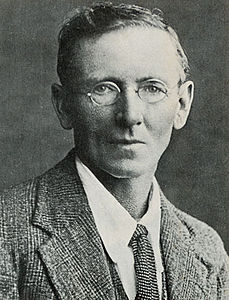Analysis of A Protest and a Protest
John Shaw Neilson 1872 (Penola, South Australia) – 1942 (Melbourne, Victoria)
A certain old maid at Port Victor
had many strange pets to afflict her,
her Kangaroos fought
with the emu's she caught
and when she protested, they kicked her
| Scheme | AABCA |
|---|---|
| Poetic Form | Tetractys (60%) Cinquain (20%) |
| Metre | 010111110 110111010 0011 10111 011010110 |
| Closest metre | Iambic tetrameter |
| Characters | 166 |
| Words | 31 |
| Sentences | 1 |
| Stanzas | 1 |
| Stanza Lengths | 5 |
| Lines Amount | 5 |
| Letters per line (avg) | 25 |
| Words per line (avg) | 6 |
| Letters per stanza (avg) | 127 |
| Words per stanza (avg) | 29 |
Font size:
Submitted on May 13, 2011
Modified on March 05, 2023
- 9 sec read
- 95 Views
Citation
Use the citation below to add this poem analysis to your bibliography:
Style:MLAChicagoAPA
"A Protest and a Protest" Poetry.com. STANDS4 LLC, 2024. Web. 20 Apr. 2024. <https://www.poetry.com/poem-analysis/24068/a-protest-and-a-protest>.


Discuss this John Shaw Neilson poem analysis with the community:
Report Comment
We're doing our best to make sure our content is useful, accurate and safe.
If by any chance you spot an inappropriate comment while navigating through our website please use this form to let us know, and we'll take care of it shortly.
Attachment
You need to be logged in to favorite.
Log In